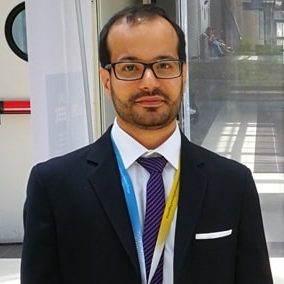Editorial Board Members’ Collection Series: Marine Renewable Energy and Sustainability
A special issue of Journal of Marine Science and Engineering (ISSN 2077-1312). This special issue belongs to the section "Marine Energy".
Deadline for manuscript submissions: closed (30 November 2023) | Viewed by 2936
Special Issue Editors
Interests: sustainability assessment; sustainable energy and mobility systems; design of renewable energy and energy conservation systems; waste-to-biofuels; green islands
Special Issues, Collections and Topics in MDPI journals
Interests: renewable energies; sea wave; wave energy converters; wind energy; energy savings; energy plan; HVAC
Special Issues, Collections and Topics in MDPI journals
Special Issue Information
Dear Colleagues,
The marine environment is currently being assessed as a potential energy source. Indeed, different phenomena can be successfully harvested as energy sources, including:
- Sea wave;
- Ocean current;
- Tides and tidal current;
- OTEC (ocean thermal energy conversion);
- Biomass cultivation;
- Saline gradient.
In this context, this Topical Collection is open to:
- The proposal of new technologies for the exploitation of marine energy;
- Energy assessment case studies;
- Marine impacts due to energy harvesting;
- Economic and environmental analyses.
We cordially invite you to submit high-quality papers to this Topical Collection. Papers submitted to this Topical Collection will be peer-reviewed by leading international researchers. Accepted papers will be published continuously in the journal (as soon as accepted), and will be listed together on the Topical Collection website. Research articles, review articles, as well as short communications are invited.
Prof. Dr. Theocharis D. Tsoutsos
Dr. Domenico Curto
Collection Editors
Manuscript Submission Information
Manuscripts should be submitted online at www.mdpi.com by registering and logging in to this website. Once you are registered, click here to go to the submission form. Manuscripts can be submitted until the deadline. All submissions that pass pre-check are peer-reviewed. Accepted papers will be published continuously in the journal (as soon as accepted) and will be listed together on the special issue website. Research articles, review articles as well as short communications are invited. For planned papers, a title and short abstract (about 100 words) can be sent to the Editorial Office for announcement on this website.
Submitted manuscripts should not have been published previously, nor be under consideration for publication elsewhere (except conference proceedings papers). All manuscripts are thoroughly refereed through a single-blind peer-review process. A guide for authors and other relevant information for submission of manuscripts is available on the Instructions for Authors page. Journal of Marine Science and Engineering is an international peer-reviewed open access monthly journal published by MDPI.
Please visit the Instructions for Authors page before submitting a manuscript. The Article Processing Charge (APC) for publication in this open access journal is 2600 CHF (Swiss Francs). Submitted papers should be well formatted and use good English. Authors may use MDPI's English editing service prior to publication or during author revisions.
Keywords
- ocean energy
- sea wave
- marine environment
- sea energies
- WEC
- OTEC






